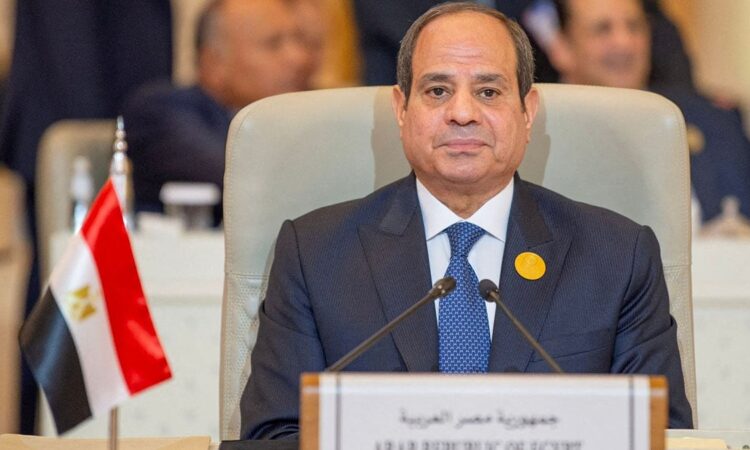
(File) Egypt’s President Abdel Fattah El-Sisi. Reuters
In recent years, the European Union (EU) has engaged in a curious dance with authoritarian leaders in countries like Egypt, Tunisia and Mauritania. The latest partner in this tango is Egyptian President Abdel Fattah el-Sisi. Once hailed as a beacon of democracy, Egypt now finds itself embraced by the EU, despite el-Sisi’s controversial rise to power.
El-Sisi, a former military man who orchestrated a coup in 2013 to overthrow Egypt’s first democratically elected president, Mohamed Morsi, has since tightened his grip on power. His regime has been marked by crackdowns on dissent and human rights abuses with political opponents languishing in jail. Despite these actions, the EU seems eager to cozy up to the Egyptian leader.
Windfall for Abdel Fattah el-Sisi
In a stunning display of support, the EU recently pledged a whopping 8 billion dollars to Egypt over the next four years. This financial windfall, which includes grants, concessional loans, and other funds, comes under the guise of a “strategic partnership” between the EU and Egypt. However, the real motivation behind this largesse becomes evident upon closer inspection.
“Today marks a historic milestone with the signature of joint declaration for strategic and comprehensive partnership, it is a partnership based on six main pillars, six areas of mutual interest for Europe and Egypt, and I am pleased to announce that this will be supported by new financial investment package of 7.4 billion euros for the coming 4 years,” said European Commission President Ursula von der Leyen.
Austrian Chancellor Karl Nehammer said, “I would also like to reiterate my gratitude to you, Mr. President El-Sissi for all of Egypt’s efforts in hosting so many refugees and for making sure that no smuggling boats with illegal migrants have left Egypt since 2016.”
The EU’s newfound generosity towards el-Sisi stems from one key factor: his role in curbing illegal migration. By stemming the flow of migrants through Egypt, el-Sisi has endeared himself to EU leaders grappling with the continent’s migration crisis. In their eyes, his authoritarian tendencies are a small price to pay for securing Europe’s borders.
Not just Egypt
But Egypt isn’t the only recipient of the EU’s benevolence. Similar deals have been struck with other authoritarian regimes in North Africa, such as Tunisia and Mauritania. In both cases, leaders who have cracked down on dissent and stifled democracy are being rewarded with financial incentives to stem the flow of migrants towards Europe.
The hypocrisy of the EU’s approach is glaring. Despite paying lip service to democracy and human rights, EU leaders are willing to turn a blind eye to authoritarianism when it suits their interests. Ursula von der Leyen, the President of the European Commission, may talk about promoting democracy and human rights, but her actions speak louder than words.
The EU’s willingness to engage with authoritarian leaders undermines its credibility as a champion of democracy. It sends a troubling message to the world that democratic values can be sacrificed in the pursuit of pragmatic goals. By cosying up to dictators, the EU tarnishes its reputation and undermines its moral authority on the global stage.
The EU’s embrace of authoritarian regimes exposes the gaping chasm between its rhetoric and reality. While it may preach democracy and human rights, its actions tell a different story. Until the EU aligns its actions with its principles, its lectures on democratic values will continue to fall on deaf ears.
Views expressed in the above piece are personal and solely that of the author. They do not necessarily reflect Firstpost’s views.






